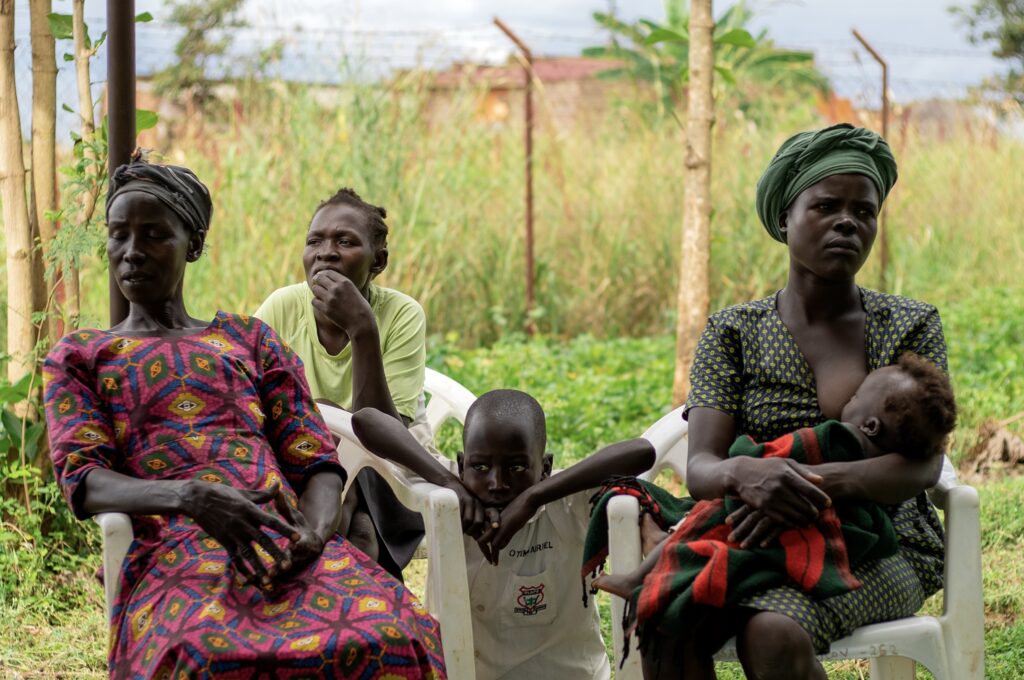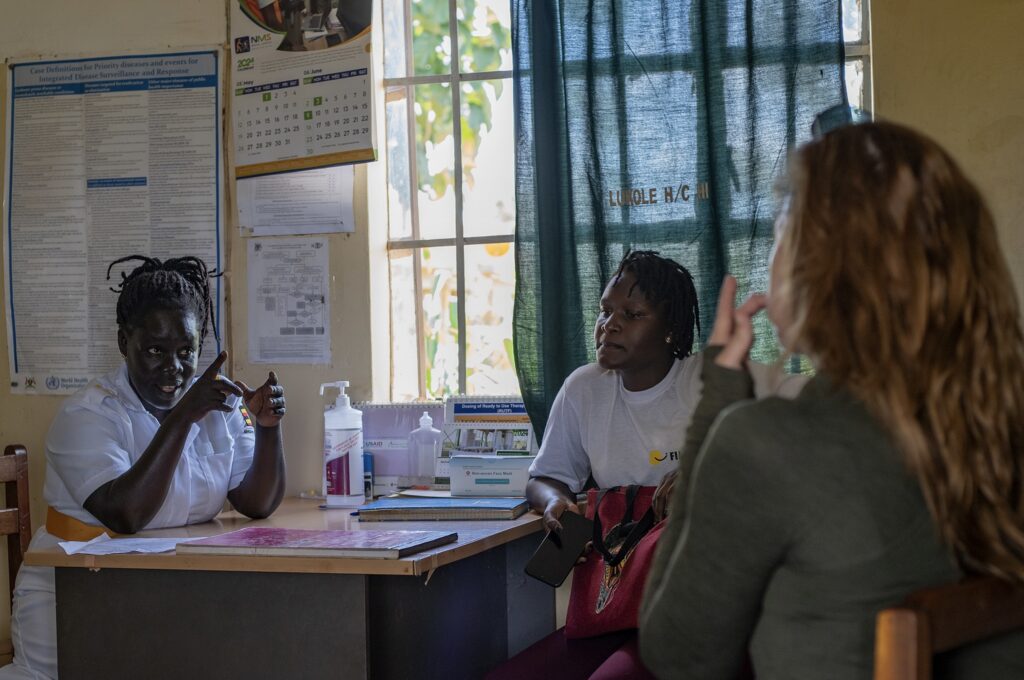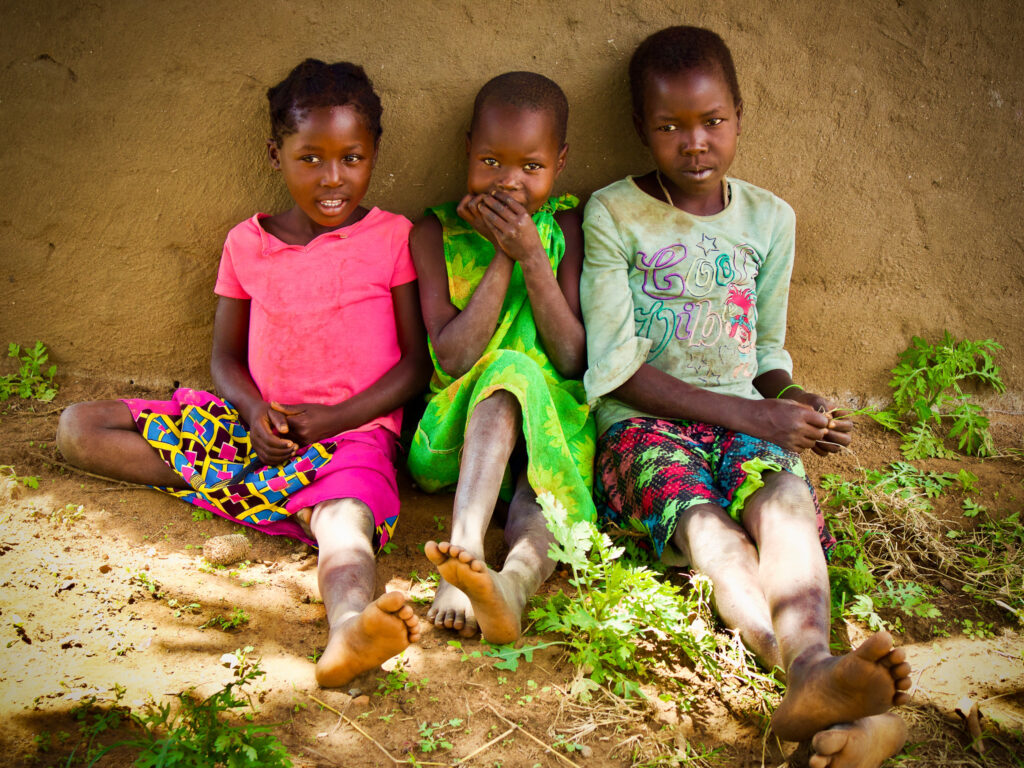WE'RE MAKING MENTAL HEALTH AN ESSENTIAL PART OF EVERYDAY HEALTHCARE IN UGANDA.
By training lay counselors and health workers, Finemind empowers communities to address mental health challenges in a scalable, cost-effective way.
Mental health conditions account for 13% of the global disease burden, yet over 75% of individuals in low- and middle-income countries do not receive adequate care. In Uganda, where 30% of the population suffers from mental health disorders, only 1% of the national healthcare budget is allocated to mental health. For many, mental health needs go untreated due to stigma, a lack of trained professionals, and fragmented care systems. Primary care facilities, which could address these gaps, currently lack the resources and frameworks to integrate mental health services.
Studies show that integrating mental health into primary care leads to better outcomes, with up to 80% of common mental health conditions effectively treated within general health settings. Furthermore, untreated mental health conditions increase healthcare costs by 20–25% due to longer recovery times, comorbidities, and repeated visits. In Uganda, where healthcare systems are already under strain, embedding mental health into routine care can improve outcomes, reduce costs, and expand access for underserved populations.

THE PROBLEM
THE MENTAL HEALTH LANDSCAPE ACROSS UGANDA'S VULNERABLE COMMUNITIES
At Finemind, we work in some of Uganda’s most vulnerable regions, where mental health challenges are fueled by conflict, displacement, and poverty. Access to care is scarce, stigma is high, and untreated trauma hinders families and communities from thriving. By integrating mental health into primary care, we are closing this gap and proving that community-led mental health care is both essential and scalable.
Our focus begins in three key districts—Agago, Ngora, and Yumbe—each facing distinct but interconnected challenges.
- Agago District: Decades of war and displacement have left Northern Uganda with some of the world’s highest rates of PTSD and depression. Women are disproportionately affected, and stigma prevents many from seeking care.
- Ngora District: Rural poverty, limited healthcare, and poor infrastructure exacerbate stress, depression, and anxiety. Without accessible services, mental health struggles go largely untreated.
- Yumbe District (Bidibidi Refugee Settlement): Home to over 280,000 South Sudanese refugees, Bidibidi faces extreme mental health burdens. A recent report found 6,800+ individuals struggling with depression, anxiety, and suicide ideation.
These communities serve as the foundation for a model we aim to scale nationwide—ensuring that no one is left behind when it comes to mental health care.
STEPPED CARE MODEL EXPLANATION
Finemind’s stepped care model is a personalized, efficient approach to mental health care that matches each person with the right level of support based on their needs. It works like a staircase, starting with lighter, community-based interventions and progressing to more intensive care only when necessary.
Step 1: Interpersonal Counseling (IPC)
Clients begin with IPC, a short-term, evidence-based therapy designed to help individuals manage depression, grief, and life challenges. Delivered by trained lay counselors, IPC focuses on improving relationships and resolving conflicts that may be contributing to their mental health concerns.Step 2: Problem Management Plus (PM+)
For those who require more structured support, PM+ offers a set of practical strategies to manage stress, anxiety, and depression. This step empowers individuals to regain control over their mental health and daily functioning.Step 3: Referral to Specialists
If more specialized care is needed, clients are referred to mental health professionals, such as psychologists or psychiatrists, to address more complex issues or diagnoses.
Care is embedded within the local healthcare system and delivered in familiar settings—health facilities, homes, or community spaces—to reduce barriers and stigma. By tailoring care to individual needs, the stepped care model ensures that resources are used effectively, reaching as many people as possible while maintaining high-quality support.

STRENGTHENING PRIMARY CARE THROUGH RELATIONSHIPS AND INTEGRATION
Finemind’s integration of mental health into primary care systems is built on deep partnerships with health facilities and local leaders. Rather than creating a parallel system, we embed mental health services into existing healthcare structures, ensuring they are sustainable and locally owned.
This work starts with building strong relationships with the Health Center Incharge, fostering trust and collaboration to align mental health care with the facility’s operations. Our integration officers work closely with data clerks at each facility, ensuring that mental health service delivery data is accurately recorded and submitted to the Ministry of Health through the District Health Information System (DHIS2). Timely data submission not only supports national reporting but also strengthens advocacy efforts to prioritize mental health in Uganda’s healthcare policies.
Through this relational approach, Finemind:
- Builds Capacity: Health workers are trained to deliver mental health care, while data clerks are equipped to manage reporting systems effectively.
- Ensures Sustainability: By embedding mental health into existing workflows, services become a routine part of healthcare delivery rather than a separate initiative.
- Drives Policy Change: Accurate and timely data strengthens the case for increased government investment in mental health care.
Integration isn’t just about systems—it’s about people. By working hand-in-hand with local health centers, we’re creating a foundation for long-term, systemic change in how mental health is understood and delivered across Uganda.

KEY PROGRAMS
1. Delivering Mental Health Treatment through Health Facility Personnel
At the heart of Finemind’s work is equipping health facility personnel to deliver high-quality mental health services. We train nurses, clinical officers, and other health workers to provide evidence-based interventions such as Problem Management Plus (PM+).
PM+ is a simple yet powerful psychological intervention developed by the World Health Organization (WHO) to help individuals manage stress, anxiety, and depression in resource-limited settings. It focuses on five core skills:
- Problem-solving to address day-to-day stressors.
- Behavioral activation to encourage engagement in meaningful activities.
- Strengthening social support by helping clients connect with trusted individuals.
- Stress management using relaxation techniques.
- Positive thinking to reframe unhelpful thought patterns.
Our trained health workers deliver PM+ in one-on-one counseling sessions at health facilities, as well as in community settings to reduce barriers to access. Sessions are tailored to meet the individual needs of clients, ensuring culturally sensitive and effective care.
2. Mental Health Awareness: Reducing Stigma and Fostering Understanding
Awareness is critical to Finemind’s mission. Many individuals hesitate to seek help due to stigma or a lack of understanding about mental health. To tackle this, we organize awareness campaigns in select sub-counties to spark dialogue and normalize conversations about mental well-being. These campaigns often include music, dance, and drama to draw community members together, creating a welcoming and engaging atmosphere. At each event, our counselors lead question-and-answer sessions, discuss the causes and symptoms of stress, and offer practical coping strategies.
Additionally, Finemind runs a weekly radio show where our counselors field live questions from listeners, share insights on mental health topics, and discuss strategies for managing daily stress. This format allows us to reach thousands of individuals across Agago District and beyond, amplifying our impact.
3. Supporting Children’s Mental Health Through Sand Tray Therapy
While our primary focus is on adults, we are committed to supporting children as well. One of our innovative approaches is sand tray therapy, a play-based, non-verbal intervention that allows children to express their emotions and process difficult experiences through storytelling and creativity. This therapy is especially effective for children who struggle to articulate their thoughts verbally due to trauma or developmental challenges.
Though sand tray therapy is not the cornerstone of our work, it is a vital piece of our commitment to holistic mental health care. By addressing the needs of children, we contribute to healthier families and communities.

